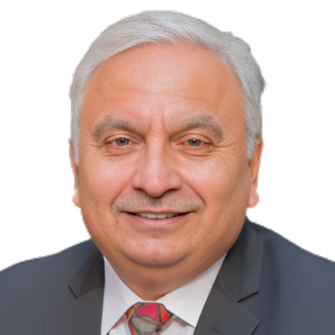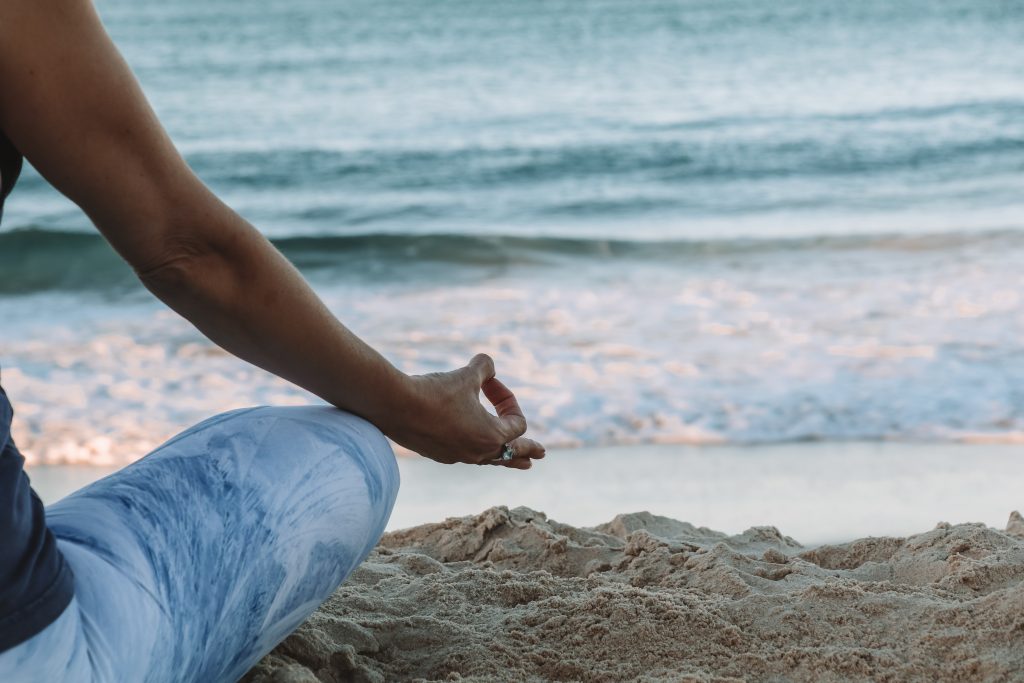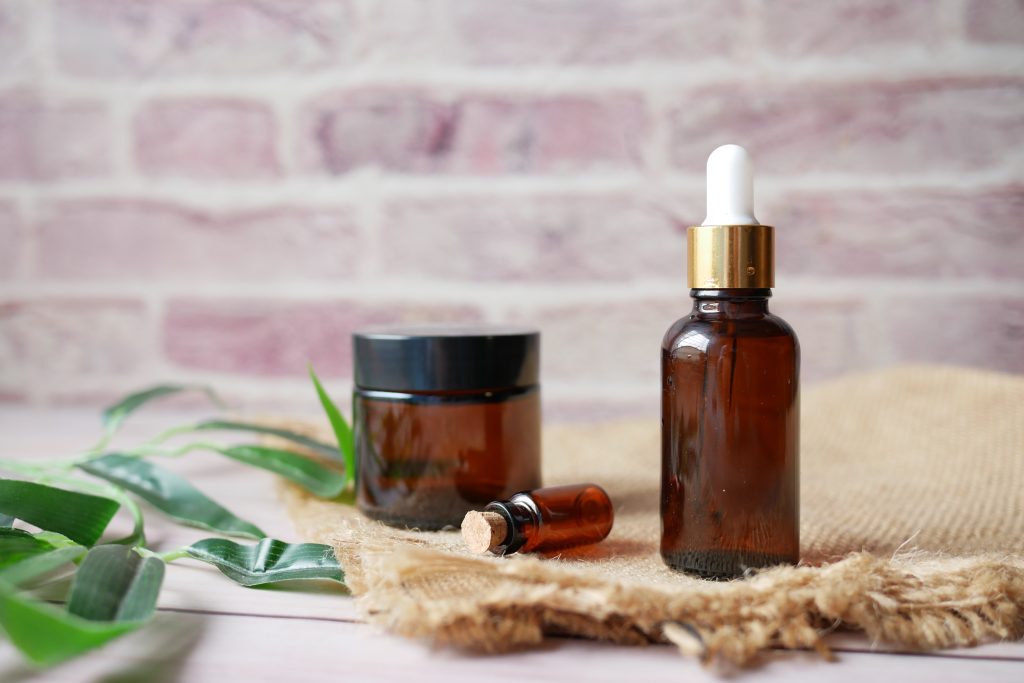Unlock the power of new-age solutions for stress and anxiety with these research-backed methods that are effective and easy to incorporate into your daily routine. You’ll find some great tips on my podcast on the topic. Here, experts offer other ways to tackle stress.

Studies have shown that in the first year of the pandemic, one in five youth experienced clinically elevated anxiety symptoms. The numbers continue to remain high, and experts predict they will continue to rise – this makes it crucial for us, as a society, to explore possible interventions.
RCI registered clinical psychologist, Salma Prabhu says, “Anxiety and stress can manifest as physical symptoms like headaches, rashes, excessive eating, cravings, and a dependency on harmful substances, to name a few.” She points out that some people also lose interest in daily activities, find it hard to cope with simple chores, start thinking of even the smallest activity as stressful; they may become reclusive. Vijay Sampath, CEO of LookAhead, a recently launched platform that supports the career development needs of working professionals, agrees. He adds that “these are typically two, very recognisable categories of symptoms of those coping with high levels of stress and/ or anxiety.”
“These [physical and psychological] are typically two, very recognisable, categories of stress and anxiety symptoms.”
- Vijay Sampath, co-founder and CEO of LookAhead


“These [physical and psychological] are typically two, very recognisable, categories of stress and anxiety symptoms.”
- Vijay Sampath, co-founder and CEO of LookAhead

Through life, we counter many stressors: some may feel the pressure of being socially accepted or popular in social circles, we also want to be ‘successful’ academically, and in our careers. Success is often measured in terms of grades when you’re younger, and later, a person’s earning and so on. This puts people under pressure constantly, as you’re trying to conform to what many view as ‘success’.
In an episode of my podcast, emotional and mental fitness expert Anand Chulani encourages people, specifically younger people, to counter this by shifting their perspective, by, for example, “falling in love with learning”. He explains that “The more committed [you are] to learning, the more you’re going to grow; the more you grow, the more you can contribute; the more you can contribute, the more valuable you are to society, to an organisation, to a business, to anything in life.”
Here are some things that will help you tackle stress and anxiety.

Through life, we counter many stressors: some may feel the pressure of being socially accepted or popular in social circles, we also want to be ‘successful’ academically, and in our careers. Success is often measured in terms of grades when you’re younger, and later, a person’s earning and so on. This puts people under pressure constantly, as you’re trying to conform to what many view as ‘success’.
In an episode of my podcast, emotional and mental fitness expert Anand Chulani encourages people, specifically younger people, to counter this by shifting their perspective, by, for example, “falling in love with learning”. He explains that “The more committed [you are] to learning, the more you’re going to grow; the more you grow, the more you can contribute; the more you can contribute, the more valuable you are to society, to an organisation, to a business, to anything in life.”
Here are some things that will help you tackle stress and anxiety.
Meditation and mindfulness

A traditional remedy
Although yoga is an ancient practice that’s a combination of physical postures, breathing techniques, and meditation, it has become a popular new-age solution for stress. On my podcast, Khan elaborates on the benefits of breathing exercises: “When you take long, deep breaths, the signal goes through the mind that the person is completely fine. They’re okay because they are breathing deeply.” Research conducted in 2022 found that yoga can alleviate anxiety in a safe and effective way. Its benefits extend to several areas, in fact: yoga helps improve cognitive skills like learning, memory, and focus.
Practising the various asanas and breathing techniques can also help students concentrate better, as this 2022 study established. Participants reported an improvement in their general intelligence, visuospatial working memory, and attention, along with drops in anxiety levels.
Also listen to: Meditation for Happiness and Joy featuring Amrita Mann
“When you take long, deep breaths, the signal goes through the mind that the person is completely fine. They’re okay because they are breathing deeply.”
- Bushra Khan, holistic psychotherapist


“When you take long, deep breaths, the signal goes through the mind that the person is completely fine. They’re okay because they are breathing deeply.”
- Bushra Khan, holistic psychotherapist
Although he wants to point out that he’s not a mental health expert himself but that he works with experts in mental health, Sampath points out that “Globally, there has been some anecdotal evidence that shows that yoga serves to calm; it’s effectiveness in the area of stress busting, too, has been studied. So, when done properly, with credible trainers and supervision, yoga may be a simple way to exercise and meditate”.
Face your fears in a safe environment
Virtual reality therapy [VRT], as the name suggests, makes use of virtual reality technologies to help alleviate stress and anxiety. It’s an interactive method that uses immersive simulations, involving a headset – users can practise coping strategies [in situations where they might ordinarily experience anxiety and / or stress] and relaxation techniques like deep breathing and visualisation in safe, controlled environments.
A 2021 study demonstrated that the future of VRT to treat stress / anxiety seems promising and that it could help in decreasing the symptoms of SAD [social anxiety disorder]. In the book Virtual Reality Therapy for Anxiety by clinicians Elizabeth McMahon and Debra Boeldt, the authors define VRT as a “technological breakthrough for therapy— especially for anxiety”.
CBD oil is safe for most people

CBD [Cannabidiol] oil is derived from the cannabis plant but does not contain the psychoactive compound THC. It works as a natural remedy that has gained popularity because of its potential to reduce stress and anxiety, as “all the ingredients are calming and soothing for the nervous system”, shares Prabhu. Some of the common ways to take it is sublingually [place the oil under the tongue for up to a minute before swallowing], orally, topically, transdermally or by inhaling. Since the oil doesn’t contain any psychoactive compounds, it is considered relatively safe for most people.
A 2022 study on young people between the ages of 12-25 years with treatment-resistant anxiety disorders found that CBD can reduce anxiety severity and had an adequate safety profile.
Activity can change your state of mind
You’ve heard this before, and you’re sure to hear it again: Numerous studies have shown that engaging in physical activity can help you physically, mentally, and emotionally. Pick an activity of your choice: go for a run, a stroll, jog, or hit the gym, do whatever you enjoy. But make it a point to add exercise to your daily routine. Exercise releases endorphins, which are natural chemicals that improve mood and reduce stress levels.
Both Sampath and Prabhu point out that activities like hiking, trekking, cycling, yoga, swimming, tai chi, pilates, etc can, thus, help with chronic stress. Sampath believes that “exercise is the best medicine for the mind and body.” Prabhu adds that “it not only helps with stress and anxiety, but also overall internal well-being.” Even a 2023 study on college students found that exercise can contribute significantly towards anxiety relief.
Also listen to: Brain Games featuring Dr Arnie Gotfryd
Inhale relief
Aromatherapy is an alternative medicine modality, which involves using essential oils to help improve mental and physical health. The oils for this holistic healing practice are highly concentrated plant extracts that are distilled from leaves, flowers, bark, and other plant parts. Their natural fragrances and properties have been seen to help reduce stress and anxiety, improve sleep quality, enhance mood, and promote relaxation.

“When there’s stress involved, all the five senses need to be calmed, which is where aromatherapy comes in – to work on the olfactory nerve.”
- Salma Prabhu, RCI-registered clinical psychologist

“When there’s stress involved, all the five senses need to be calmed, which is where aromatherapy comes in – to work on the olfactory nerve.”
- Salma Prabhu, RCI-registered clinical psychologist
The aromas of certain plants have been seen to impact the limbic system, which is a part of the brain that is responsible for emotions and memories. A 2022 study found that aromatherapy can improve not only the physical but also mental health of the elderly and middle-aged. Another study demonstrated that inhaling certain essential oils can help college students with test anxiety. Prabhu says: “When there’s stress involved, all the five senses need to be calmed, which is where aromatherapy comes in – to work on the olfactory nerve.” She recommends using lavender, tea tree oil, chamomile, jasmine and lemongrass, as they are soothing, and shares that when accompanied with soothing music and comfortable kinesthetic-tactile techniques, the effect can be multiplied.
Techniques like these can be combined to develop a more comprehensive approach to managing stress and anxiety. Catch my podcast with Anand Chulani and Bushra Khan for more tips.

